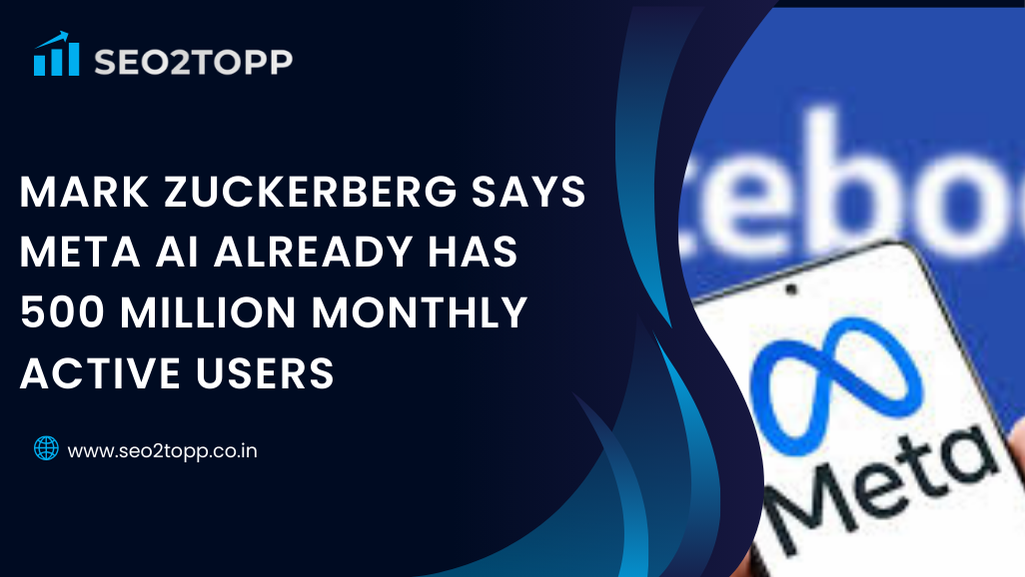Summary
This article delves into the advancements in AI technology spearheaded by two tech giants: Meta and Google. Both companies are making significant strides in the development of artificial intelligence that integrates seamlessly into everyday devices. Meta, through its Meta AI, has seen massive growth with nearly 500 million monthly active users, introducing features like natural voice interaction with famous personalities and unveiling cutting-edge devices like the Meta Quest 3S and Ray-Ban smart glasses. Similarly, Google is advancing its AI assistant, Gemini, by integrating it into Pixel Buds, enhancing user interaction and personalization.
Key takeaways
- Meta AI now boasts 500 million active users, making it one of the most popular AI assistants globally.
- Meta’s new AI-powered smart devices, like Ray-Ban glasses and the Meta Quest 3S, emphasize natural, hands-free interaction.
- Google’s Gemini AI is set to revolutionize Bluetooth earbud functionality, offering personalized, hands-free assistance through Pixel Buds.
- Both Meta and Google are heavily investing in AI, signaling that AI-driven wearable technology is poised to reshape user experiences across various platforms.
Introduction: The AI Revolution
Artificial intelligence (AI) is evolving rapidly, moving beyond research labs and into the hands of everyday consumers. AI’s potential to improve user experiences in technology is being realized through seamless integration into devices like smart glasses, earbuds and smartphones. Two companies leading this revolution are Meta and Google, both of which are implementing groundbreaking features that make AI more accessible and natural for users.
Meta has been making waves with its Meta AI, which recently hit a milestone of 500 million monthly active users. Meanwhile, Google has been fine-tuning its Gemini AI assistant, enhancing its integration with Pixel Buds and making voice commands even more seamless. In this article, we’ll explore how Meta and Google are positioning AI to become an indispensable part of our daily lives, through wearables, assistants and immersive experiences.
Meta AI: A Game Changer in AI Assistants
At the forefront of Meta’s innovations is its rapidly growing Meta AI, which has amassed a staggering 500 million active monthly users. CEO Mark Zuckerberg highlighted this milestone during Meta’s Connect conference, emphasizing that Meta AI is on track to becoming the most-used AI assistant globally by the end of 2024. Meta AI is unique in that it offers free, unlimited access to state-of-the-art models, integrated across Meta’s social media platforms such as Instagram, Facebook and WhatsApp.
One of the standout features of Meta AI is its natural voice tool, where users can interact with AI using the voices of famous personalities like John Cena, Kristen Bell and Judi Dench. This level of personalization and accessibility creates an immersive experience that brings AI closer to everyday users, making interactions with AI feel natural and intuitive. The addition of this tool to platforms like Instagram and Facebook has further cemented Meta’s lead in AI-driven social experiences.
Llama 3.2: Meta’s Industry-Leading Large Language Model
Another highlight from Meta’s Connect conference was the introduction of Llama 3.2, Meta’s open-source multimodal large language model (LLM). Zuckerberg compared Llama to Linux in terms of its industry impact, emphasizing that its open-source nature has spurred competition among other AI labs. Llama’s ability to work with multiple types of data, including text, images and video, makes it a versatile tool for developers, businesses and researchers alike.
Meta’s investment in AI is substantial, with projections showing that the company will spend between $35 and $40 billion on AI development in 2024 alone. This level of investment demonstrates Meta’s commitment to becoming a leader in AI technology, particularly in its applications within social media, smart devices and immersive technologies.
Smart Glasses and Meta Quest 3S: The Future of Wearable AI
In addition to Meta AI, Meta is pushing the boundaries of wearable AI with its Ray-Ban smart glasses and Meta Quest 3S mixed reality goggles. The Ray-Ban glasses now include features that allow users to interact with Meta AI in a more natural way, without needing to use trigger phrases like “Hey Meta.” These glasses can scan QR codes, translate text in real time, and provide information about the user’s surroundings. Meta’s focus on making smart glasses more intuitive and user-friendly marks a significant step forward in wearable tech.
Additionally, the Meta Quest 3S mixed reality goggles are set to retail at just $299, making high-end augmented reality (AR) experiences more accessible. These goggles allow users to interact with holographic images and access social media apps like Instagram and Facebook in AR. Meta has also partnered with Microsoft to integrate Windows 11 compatibility into the goggles, enhancing their utility for remote work and productivity.
Orion: Meta’s Leap into Holographic AR Glasses
Perhaps one of the most exciting reveals from Meta’s Connect conference was Orion, the world’s most advanced holographic AR glasses. With these glasses, users can see holographic images overlaid on the physical world, allowing them to interact with their environment in entirely new ways. For example, users can reply to messages using subtle gestures without ever needing to pull out their phones.
Orion glasses also feature a neural interface, enabling users to send signals from their brain to the device, eliminating the need for voice or gesture commands. Although still in the prototype stage, Meta is making rapid progress toward releasing Orion glasses to consumers, promising a future where interacting with digital information feels like a natural extension of human thought.
Google Gemini: AI-Powered Pixel Buds
While Meta is making huge strides in AI across various platforms, Google is not far behind, with its Gemini AI assistant. Recently, Google announced that Gemini would soon be integrated into all Pixel Buds, including the Pixel Buds A-series and Pixel Buds Pro. This integration will allow for hands-free, personalized assistance without needing to unlock your phone.
Google’s focus on making AI assistants more convenient and personalized is evident in its changes to voice commands. With Gemini, the familiar “Hey Google” activation phrase will now be more streamlined, offering quick access to AI functionality on Bluetooth headphones. Pixel Buds users will be able to interact with their devices more intuitively, making it easier to receive hands-free help while on the go.
In regions where Gemini is not yet available, the Assistant will still be the default AI, but the shift toward Gemini signals Google’s commitment to advancing AI functionality in everyday consumer products.
Enhancing User Experience with AI: Meta vs. Google
While both Meta and Google are investing heavily in AI, their approaches to integrating AI into user experiences differ. Meta is focusing on embedding AI into its social media platforms and wearables like the Ray-Ban smart glasses and Meta Quest goggles. These devices are designed to create immersive experiences that blend the digital and physical worlds seamlessly. Meta’s heavy emphasis on personalization, through features like famous voice assistants and natural language processing, aims to make AI feel like a natural extension of the user’s life.
On the other hand, Google is working to enhance everyday interactions with AI through its Gemini-powered Pixel Buds. These AI assistants prioritize hands-free convenience and real-time personalization, allowing users to engage with their devices without needing to touch their phones or earbuds constantly. Google’s focus on enhancing mobile and wearable AI through seamless voice activation positions Gemini as a key competitor in the AI race.
The Future of AI-Powered Wearables
As both Meta and Google continue to innovate in AI technology, it is clear that AI-powered wearables will become increasingly integrated into everyday life. From smart glasses that offer real-time information and translations to earbuds that deliver personalized assistance, AI is poised to revolutionize how we interact with the digital world.
Meta’s ambitious plans to develop holographic AR glasses and neural interfaces hint at a future where digital information can be accessed without ever looking at a screen. Meanwhile, Google’s integration of Gemini into Pixel Buds emphasizes convenience and personalization, making AI assistants more accessible for everyday use.
Conclusion
The advances made by Meta and Google in AI technology are transforming the way users interact with their devices. From Meta’s AI-powered wearables and holographic glasses to Google’s Gemini-powered Pixel Buds, AI is becoming an integral part of our daily lives. Both companies are heavily investing in AI, with Meta aiming to create immersive, personalized experiences through augmented reality and Google enhancing convenience and accessibility in mobile devices.
As we move forward, it is likely that AI will continue to expand its reach, creating new possibilities for user interaction in both the physical and digital realms.










Leave a Reply